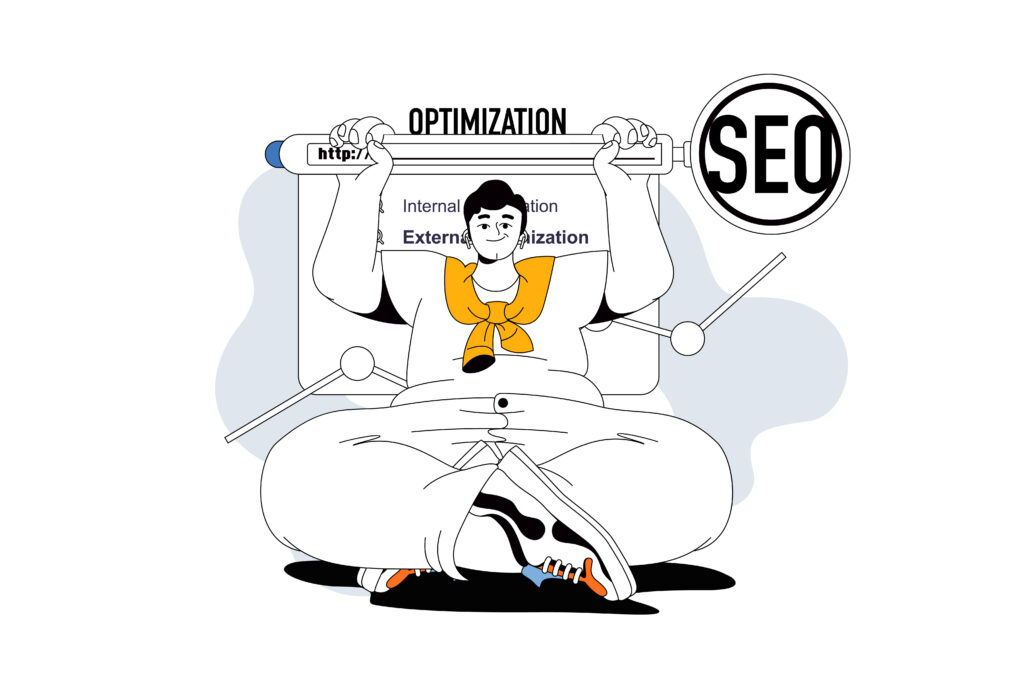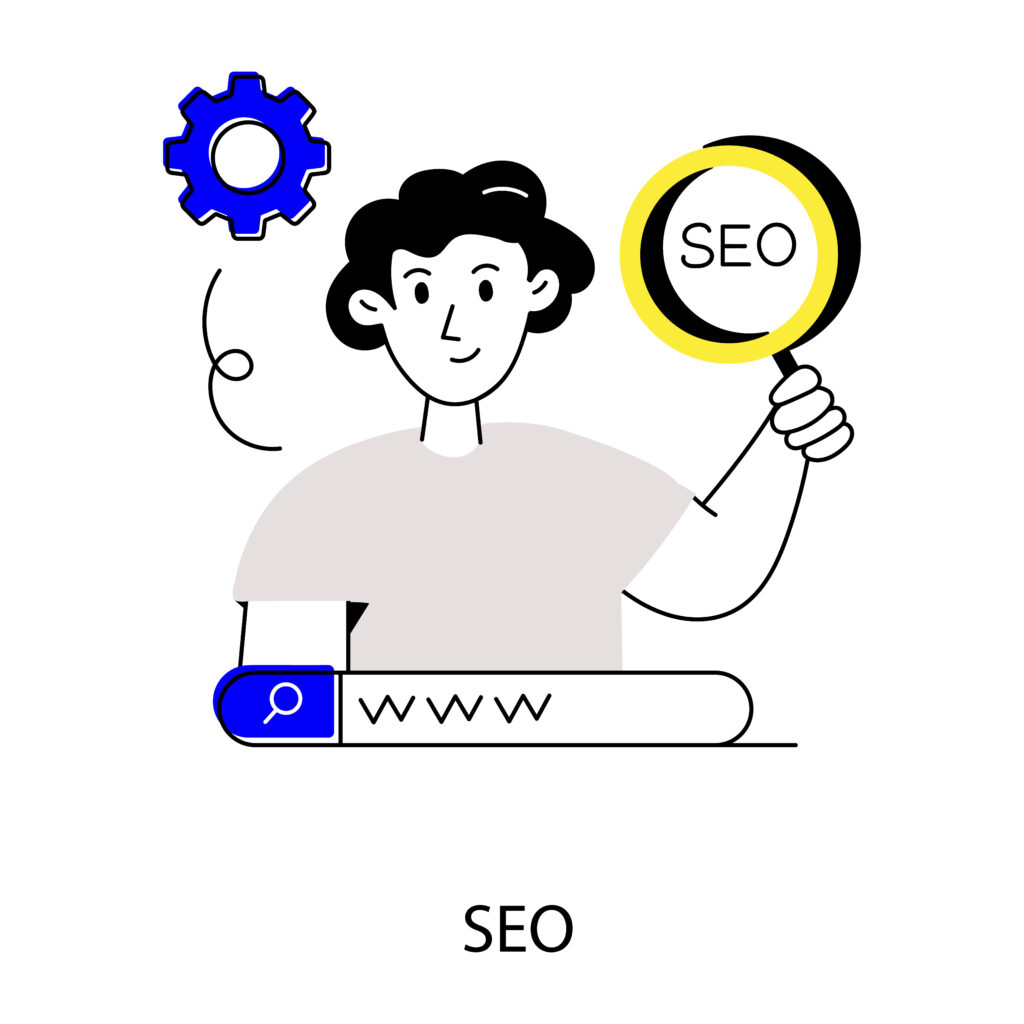Have you ever wondered what makes your website rank high on Google? Many people in the SEO world find it a puzzle. Google’s algorithm is complex, but knowing the main website ranking factors can help your SEO a lot.
Google’s search algorithm checks many things. It wants to show users the most relevant search results. It looks at the search words, how relevant a page is, how easy it is to use, the authority of the information, and the user’s settings. All of these are vital but can be more or less important depending on the search context.
For example, having new content is key for news sites. But for a general topic, like simple math definitions, freshness might not matter as much. We’ll look closer at these factors and see how you can improve your website’s SEO.
Key Takeaways
- Google’s algorithm looks at many factors like the search words and how relevant the page is.
- This importance of these elements can change based on what people search for.
- Having new content is especially important for news topics.
- Knowing and using these factors can really help boost your SEO.
- Improving both on-page and off-page SEO is crucial for ranking better.
So, let’s dig deeper into each factor to understand them better

Introduction to Google’s Ranking Factors
Knowing Google’s ranking factors well is key for making your website better. Google looks at over 200 things to show the best search results. It looks at things like your site’s domain, each page’s details, and how many other sites link to yours.
In this part, I’ll explain what each part means for your site. It’s important to understand these details to improve your SEO performance.
Google’s Search Algorithm
Google’s system is not easy to understand but complex. It looks at things like the strength of your website, the words you use, and if your content is genuine or spam. This means your website needs to have good quality in many areas to rank well.
Over time, experts have tried to list all these factors. While a lot is known, the importance of each factor is still a guess. Google often changes how it ranks websites. So, staying updated on these changes is important. It helps keep your website doing well in searches.
Quality Content: The Cornerstone of SEO
Discussing content quality and relevance reveals their crucial role in SEO. Google aims to provide users with high-quality, useful content. The depth of your content matters more than keeping it short.
When it comes to SEO best practices, top-notch content requires deep research. It must aim to help users. Valuable content makes your site more credible. It also keeps users interested, lowering bounce rates and improving your page’s rank.
Consider this comparison to understand why content quality is key:
| Content Type | Ranking Potential | User Engagement |
|---|---|---|
| High-Quality, Informative | High | Increased |
| Superficial, Brief | Low | Decreased |

Following SEO best practices means focus on creating detailed content. This meets both algorithm standards and user needs. It results in a better user experience and higher rankings.
In conclusion, quality and relevance are essential in SEO. Adapting to new algorithms means still offering valuable, well-researched content. This is how we succeed in SEO.
Backlink Building Strategies
Backlinks are like online endorsements from other sites. They are key for better search engine rankings. Crafting the best backlink building strategies can really lift your website’s status and visibility.
Types of Backlinks
Knowing the types of backlinks is important in SEO. Backlinks mainly fall into two groups:
- Do-follow Backlinks
- No-follow Backlinks
Do-follow Backlinks spread authority from one site to another, improving search rankings. On the other hand, No-follow Backlinks don’t boost authority. But they help bring visitors and make your brand more visible.
Building High-Quality Backlinks
Effective backlink building strategies are built on getting high-quality backlinks. These are links from respected and relevant sites in your field. Here are ways to get these important backlinks:
- Guest Blogging: Write articles for leading blogs in your niche.
- Collaborations: Join forces with influencers and leaders to get featured.
- Broken Link Building: Help fix broken links by offering your content as a substitute.
Using these methods can greatly improve your backlink network. This leads to stronger and lasting SEO growth for your website.

Technical SEO: Ensuring Your Site is Search Engine Friendly
When we talk about Technical SEO, we’re focusing on things like website speed and how well it works on mobile. To make sure your site is easy to find and use, it’s key to pay attention to these. Google, for example, looks at how quickly your pages load based on Chrome user data. So, it’s vital to make sure your site runs fast and well.
Nowadays, most people use their phones to browse the internet. So, being mobile-friendly is a must for SEO today. This helps:
- Make the user’s time better
- Get higher up in search results
Incorporating Accelerated Mobile Pages (AMP) can make your site more visible. This is especially true in places like the Google News Carousel. Even though AMP doesn’t directly affect your ranking, it helps indirectly by improving speed and mobile-friendliness.
Don’t overlook the importance of being indexed well for solid Technical SEO. Good indexing means search engines can easily go through and understand your site. As a result, this can lead to more people finding you and better search rankings.
Here’s a quick look at the top Technical SEO points to remember:
| Element | Importance | Impact on SEO |
|---|---|---|
| Website Speed | High | Directly affects rankings through user data |
| Mobile-Friendliness | High | Improves user experience and search rankings |
| Indexation | Critical | Ensures content discoverability and ranking |
Keyword Optimization Best Practices
Optimizing keywords is key to on-page SEO. You can boost search engine visibility by placing them well. We’ll look into using long-tail keywords for improving your site’s rank.
Keyword Placement
Where you put keywords on your page matters a lot. Place them in important spots like the first 100 words, titles, and headings. Using LSI keywords makes your content more relevant and higher quality.
Title tags and H1, H2, and H3 headings are good places for keywords. Even meta descriptions, which don’t change rankings, help with click-through rates. These rates are vital for good SEO.
Long-Tail Keywords
Using long-tail keywords has many benefits. They’re specific and not as competitive, drawing targeted traffic. This can lead to more conversions. Long-tail keywords are key in niche markets for better engagement.
Keep updating your content with these keywords. This helps with ongoing keyword optimization and boosts your SEO.
Understanding Google’s Ranking Factors
In the world of search engine optimization (SEO), it’s critical to know Google’s changing ranking methods. Google looks at many factors when ranking a site. Age, history, and keywords are crucial. They help show how a site fits in the search world.
“The inclusion of descriptive keywords is essential for optimizing individual pages to rank well.”—Google Search Central
Now, let’s compare the importance of domain and page factors:
| Domain-Specific Factors | Page-Specific Factors |
|---|---|
| Age & History | Content Quality |
| Keyword Inclusion | Loading Speed |
| TLD Extension | On-Page Optimization |

Knowing and using these ranking factors can align your site better with Google. This can help improve your SEO. By focusing on both domain and page elements, you can boost your site’s rank and show up more in searches.
User Experience (UX): Keeping Users Engaged
Creating meaningful user engagement is key, with UX at the heart of it. A website that’s easy to use and loads fast is more likely to please and keep its visitors. This not only keeps users on your site but also helps rank higher in search engines.
Website Usability
Good website usability is crucial for a great user experience. It means visitors can find what they need easily, without hassle. You make this possible through simple menus, clear action steps, and an easy-to-follow layout.
Using designs that work well on all devices and for everyone also boosts usability. This way, your site is welcoming to all visitors.
Page Loading Speed
How fast your pages load matters a lot. In today’s world, people want everything instantly. Studies show a one-second delay can hurt user satisfaction and conversions. Fortunately, tools exist to help you check and improve your site’s speed.
To speed up, you can optimize images, use browser cache, and reduce CSS and JavaScript. Implementing these steps can make a big difference in your user’s experience.
A website with both great usability and fast speed keeps visitors around longer. It’s not just good for users, but search engines consider these too. This makes them vital for a site’s success.
Impact of Google Algorithm Updates
Google’s updates have changed the game for SEO. They make search results more accurate and relevant. Keeping up with these updates is key for a good SEO strategy. For instance, updates like BERT and MUM help Google understand search queries and content better.
Significant Updates
Google released two major updates, BERT and MUM. BERT makes Google understand search context better. MUM takes this further, understanding topics deeply and across different languages.
Adapting to Changes
Being competitive means adapting to algorithm changes. Creating great content that meets user needs is one way. Using natural language and deep content help meet Google’s changing preferences. This strategy can help understand and adapt to Google’s updates.
| Update | Key Focus | SEO Impact |
|---|---|---|
| BERT | Contextual Understanding | Improved query interpretations |
| MUM | Multitask Learning | Enhanced query context understanding |
Importance of Content Quality and Relevance
SEO is all about making top-notch content and keeping it relevant. Google says you should focus on creating stuff that people enjoy and find useful. Doing this not only helps build trust but also shows that you’re an expert in your topic.
Google gives a thumbs up to websites that put people first. It’s not big on content that’s only there for search engines and doesn’t really help. The table below shows what Google likes in your content:
| Element | Impact on Ranking |
|---|---|
| Comprehensive Coverage | High |
| Relevance to Topic | High |
| Expertise and Authority | High |
| User Engagement | Moderate |
Making sure your content is both great in quality and relevance is key. It not only boosts where you show up in search but also makes visitors happy. Great and helpful posts are still the core of good SEO.
Schema Markup: Enhancing Search Engine Understanding
Schema markup is essentially structured data. It gives details to search engines, helping them understand our content better. This means my site might show up more often in search results on Google, thanks to the details.
This special data helps search engines know what our content is about. For instance, a recipe page tells search engines how long to cook, what’s inside, and the health facts. This makes it easier for the recipe to show up when people look for these details online.
Using schema markup can make search results look better. They may show as rich snippets, drawing more people in. We can mark up products, reviews, events, and FAQs. Doing this well can boost where my website is in search lists and how often people click on it.
Adding schema markup from schema.org lets search engines offer users more. It makes the search experience better and our content more likely to show. So, it’s like a guide for search engines, pointing them to what’s important on my pages.
| Schema Type | Description | Examples |
|---|---|---|
| Product | Provides details about a product, including its name, price, and availability. | E-commerce store items |
| Recipe | Includes information about a recipe such as ingredients, cooking instructions, and nutrition. | Food blogs, cooking websites |
| Event | Shares event details like location, date, and time. | Concerts, conferences, local events |
| FAQ | Displays frequently asked questions and their answers. | Customer service pages |
Leveraging Social Signals for SEO
In today’s world, social signals are key for better SEO. These signals come from likes, shares, and comments on social media. They give clues about how people find and like content.
Even though these aren’t direct ranking factors, they show the quality of a page’s content. This influences how search engines see the value of the page.
“Social signals may not directly boost your SEO rankings, but they play a significant role in driving traffic and establishing content authority.”
Google checks how people engage with your content on social media. If people engage a lot, it likely means your content is good. This can help your SEO. Improve your SEO by mixing social media into your SEO strategy. This enlarges your website’s reach and trustworthiness.
Sites like Facebook, Twitter, and LinkedIn are great for getting people interested. Share content that your audience likes to get more social signals. This’ll boost your SEO too.
| Social Signal | SEO Impact |
|---|---|
| Likes & Shares | Indicate content popularity |
| Comments | Reflect user engagement |
| Mentions | Enhance visibility through user-generated content |
| Followers | Boost brand authority and trust |
Talk to your audience often. Ask for shares and build a community around your content. This leads to more positive social signals. It helps bring more traffic and strengthens your SEO in a roundabout way.
Brand Signals: Building a Trusted Online Presence
Having a strong online presence is key to a successful SEO strategy. It’s crucial for gaining trust and credibility on the internet. This trust leads to better search rankings. Let’s explore brand mentions and online reputation’s role in SEO in more detail.
Brand Mentions
Brand mentions are when your brand name is talked about online. This can happen in blogs, news sites, or social media. Google notices when your brand is mentioned a lot, especially if it’s positive. This helps your website look more reliable and important. It’s why getting more brand mentions is a good SEO strategy.
Online Reputation
Managing what people say about your brand is vital. This means keeping an eye on reviews and feedback. A good online reputation makes customers and search engines trust you more. Remember, Google checks details like WHOIS data and penalties when judging a website’s trust. So, working on your online reputation can boost your brand’s signal and search rank.
Conclusion
It’s key to know Google’s ways to make your SEO plan work better. Things like your site’s age and choosing the right domain name matter. Plus, having your site run well and looking trustworthy is important, too.
Your content’s quality is equally vital. Use good keywords in titles and text. Google also likes sites that work well on phones. It values accurate spelling and grammar. Keeping your info up to date and your images clear is a win for your site’s search position.
Also, make sure your site is fast and looks good on all devices. Help Google understand your content with schema markup. Be social and make your site a good place for visitors, which Google notices. Good links and a strong brand name also help a lot. Focus on great content, keep your site tech-savvy, and make users happy. This approach will set your site up for success in SEO.
